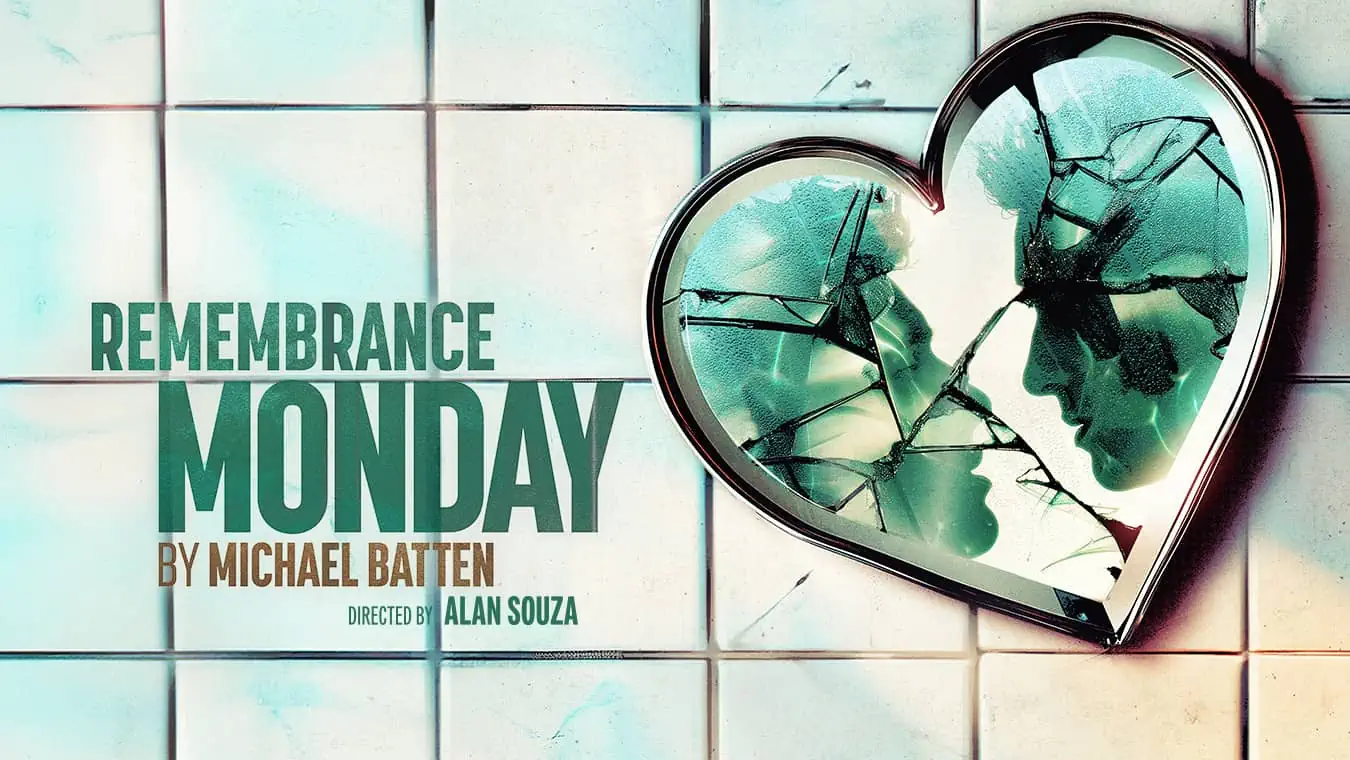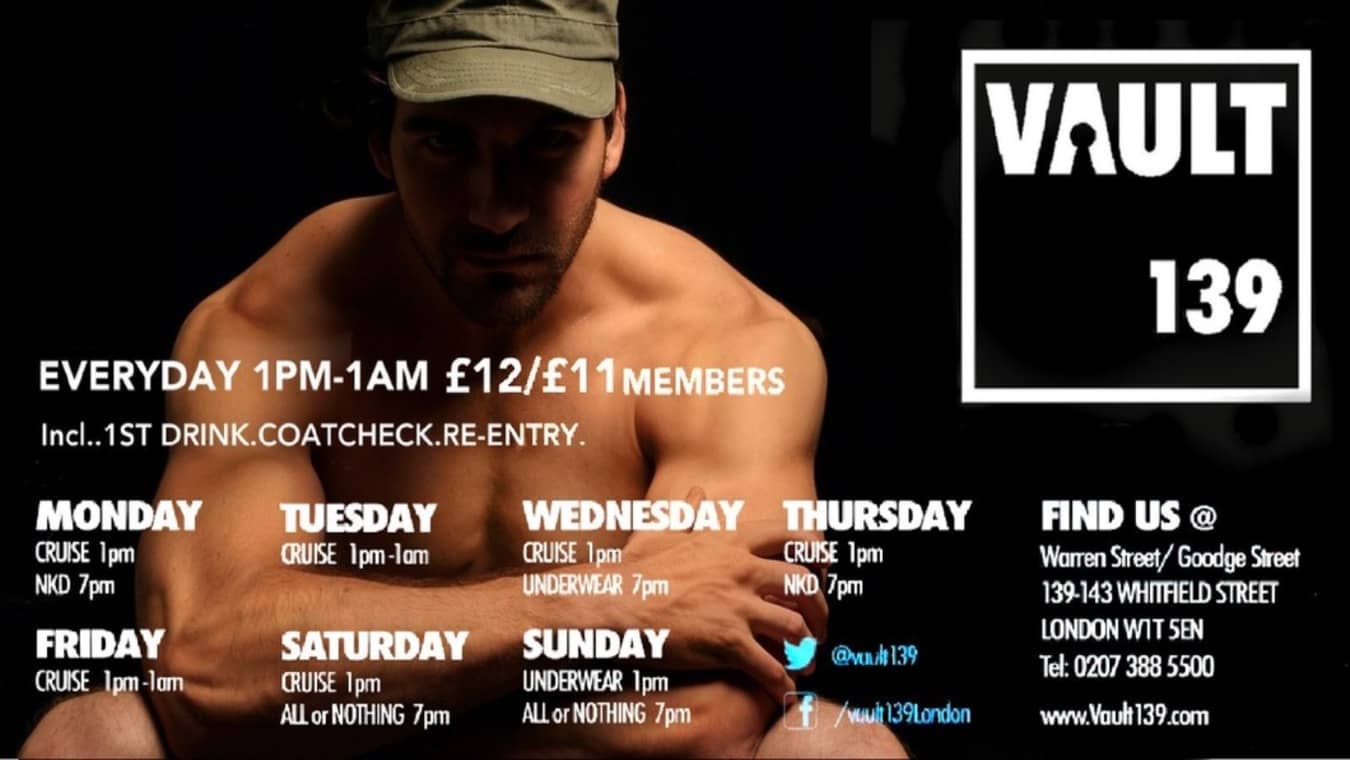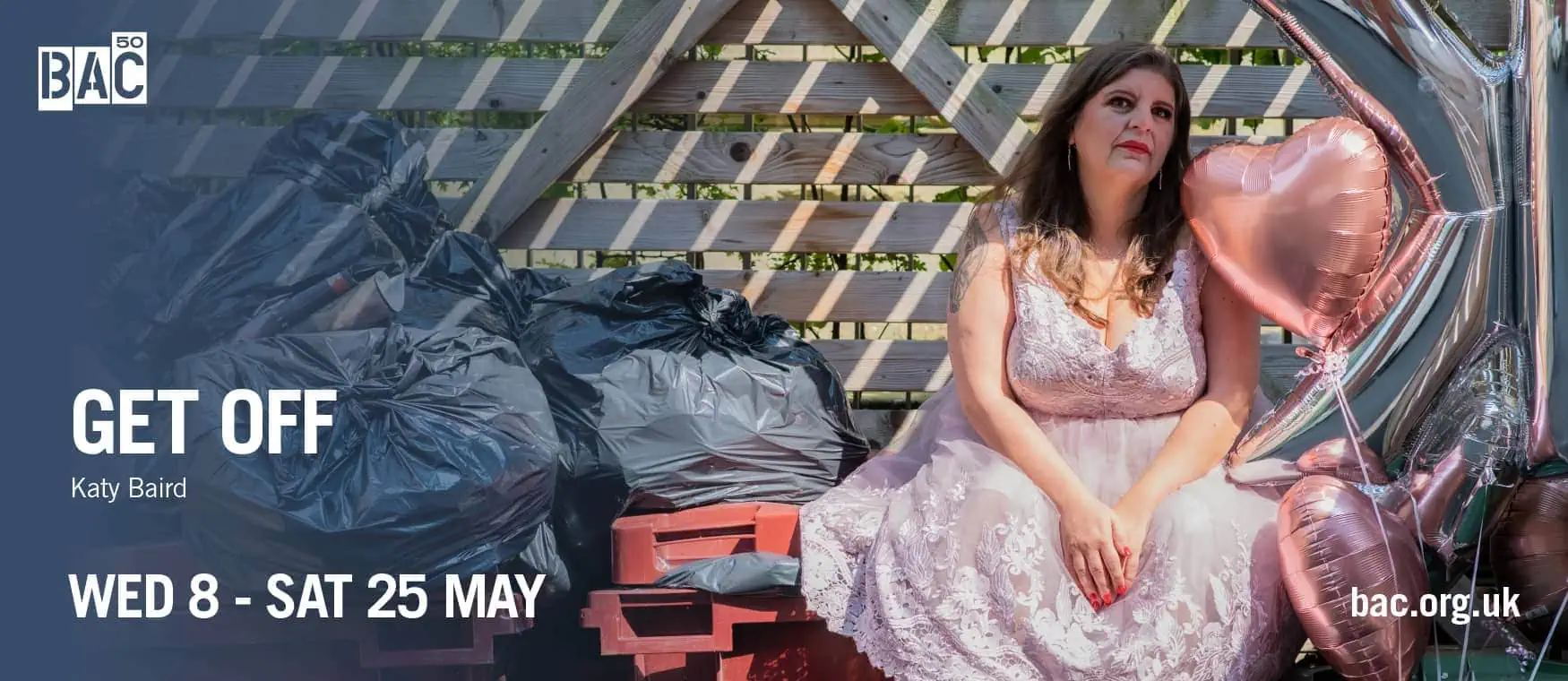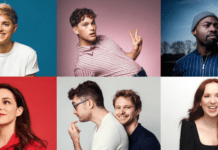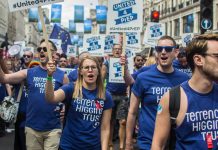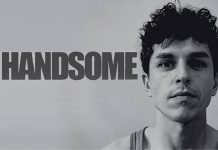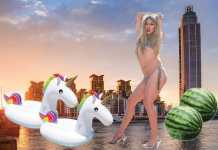As Coronation Street wraps it up pioneering storyline about male to female transgender character Hayley Cropper this week, QX looks at what life is like for real trans women in the UK today…
By Patrick Cash
Everyone in the gay community knows what the letters of our umbrella acronym ‘LGBT’ stands for: lesbian, gay, bisexual and transgender. But often it seems that ‘LGBT’ is used simply as a synonym for ‘gay’, making the ‘B’ nominally halfway included, and the ‘T’ essentially invisible. Gay venues are everywhere in London, but specifically trans-centred events are relegated to the welcoming but niche club nights like The Way Out Club, Trannyshack and Ted’s Place. Given that transgendered people make up a quarter of what we explicitly term to be our community, we spoke to four women here about their experiences – all of whom were biologically male and have physically transitioned to the female identity that they already hold psychologically.
What is conveyed very pertinently in the words of these strong, intelligent women is that they are happily self-assured, confident and successful in their chosen fields, unwilling to bend or bow to any external prejudices. But there is still huge adversity and misunderstanding for trans people to navigate in mainstream society, and not all trans women are so secure in themselves.
Only in March of last year did QX attend a candlelit vigil outside The Daily Mail’s headquarters Northcliffe House, after transgender primary teacher Lucy Meadows took her own life. The reasons behind Meadows’ suicide were strongly thought to be linked to an insulting, ignorant and polemical article by professional ‘Mail troll Richard Littlejohn, outing and attacking Lucy as a bad influence on her pupils and using the wrong pronoun throughout: “he isn’t entitled to project his personal problems on to impressionable young children.”
Similarly, Paris Lees has just published an article for Vice regarding a female academic doctor who lied about her qualifications, and was outed by a journalist as not only an academic fake but also transgender. The woman in question killed herself a few days later. Then there is the sad case of Islan Nettles, the transgender woman in Harlem who was beaten to death on the street. Unfortunately, these kind of attacks in the States are not isolated incidents.
But with the inclusion of trangender characters on mainstream television shows, like Hayley Cropper on Coronation Street (celebrated with an unofficial memorial service at G-A-Y) and Laverne Cox playing Sophia Burset in US series Orange is the New Black, we can hope that slowly but surely we’re all still moving forward.
TESSA HAUKE – Camden LGBT Forum
Tell us a little about yourself and what you do.
My name is Tessa Hauke. I’m in my late 40s and I live and work in this fabulous city called London. A large part of my life is devoted to activism of one sort or another. I work for a small charity called Camden LGBT Forum, which aims to improve the lives of LGBT people in Camden and help those who have experienced homophobia and / or transphobia. I live in a queer cooperative in South London, which campaigns on many different issues like LGBT activism, feminism, campaigning against the cuts and austerity and more. I’m also the co-founder of a group called TransLondon, which offers safe space and the opportunity for trans identified people and those questioning their gender to meet and socialise. When I’m not trying to change the world, I enjoy a nice glass or two, or three of wine, whilst flying my Boeing 737 in a virtual world of flight simulation on my computer.
When did you ‘come out’ as trans? How did people react?
I came out to myself when I was around 12 years old – that was when I knew for sure I was trans. I remember watching a BBC drama featuring a trans woman and it was an OMG moment – That’s me! But it would be another 20 years before coming out to my then girlfriend. Our relationship was on thin ice and she was blaming herself for the difficulties. I couldn’t let her think it was her fault and so I told her everything about my gendered unhappiness. She was great and very matter of fact about it all and said I needed to have a chat with the doctor. It was a huge relief and life started getting better.
Did you know of any positive trans figures when growing up? How did you find out about more about your identity, if not?
I don’t recall any positive role models as such. There were the occasional television programs but they mostly portrayed trans women as sorry, pitiful creatures. I loved the Rocky Horror Show though and the song, Over At The Frankenstein Place is one of my all-time favourites. When Dana International won Eurovision, that was when I seriously started thinking about coming out and facing up to who I really was, even if it meant ridicule for the rest of my life.
For people who know nothing about trans, do you identify as ‘trans’ or ‘female’?
These days, I’m just me and the question of whether I am trans / female is very rarely asked. I know most people would gauge from my appearance that I am trans but that doesn’t bother me at all. If pressed, I would describe myself as female with a trans history.
Is there enough support from the NHS/government for people dealing with their trans identity in the early stages?
This is quite a tough question. When I came out and sought medical help, I was very fortunate in that I had a GP who was willing to help, even though he didn’t have the expertise – I found most of the information for him on the rapidly expanding internet. I was very lucky to have medical professionals who wanted to help me; there were a heck of a lot of trans people who were experiencing great difficulty in accessing medical care because their GPs were hostile or the local health authority was unwilling to fund. The only recourse for a lot of people was to either go to court or pay for treatment in the private sector. Also around that time, the campaign group Press for Change was rallying trans people across the country to lobby their MP and the government set up a working party group to examine changing the law and recognise trans people’s gender identity.
A lot has changed. More doctors are aware of treatment protocols and are willing to help. Court rulings have declared that trans people have the right to access medical treatments and the public, on the whole, understand that the costs are worth it. But, a 2007 survey undertaken by Press for Change showed that 85% of all GPs didn’t know about or didn’t want medical treatment for trans people. Even today, for many trans people, it is a huge battle trying to convince local health authorities to provide access to medical care. Always it is about the cost and there are far greater priorities ahead of the care for trans people. There is a view that this is more about an institutional prejudice rather than the cost, as the cost is relatively cheap when compared to cancer treatments and such. And of course, there is the press. Newspapers, especially some of the tabloids, have a pedigree in portraying trans people in ways that are humiliating, demeaning and downright untrue. They project stereotypes which suggest we deserve ridicule. Thankfully, I feel people are waking up to this and realise these are divisive means to sell papers.
From a legal perspective, things have improved hugely for trans people. Our gender recognition is enshrined in law and the Equality Act goes quite some way towards protecting trans people from discrimination.
How do you feel about representation of trans characters on TV, like in Coronation Street and in Orange is the New Black?
Television has come a long, long way in the portrayal of trans people. Rarely do we see trans characters as weak, pathetic creatures, deserving of the bad things happening to them, or them just being the nastiest psychopathic villain going! Writers and producers realise trans characters can offer hugely positive and interesting themes in character and plot. I know when Haley Cropper appeared on Corrie, the producers bent over backwards to have a character who was authentic and who truly reflected the lives of trans people in the real world. It was ground breaking stuff. And now it’s up to another level – I think it’s really great that programme makers have the confidence to cast real life trans people in trans roles. Maybe one day, you will never know or it won’t seem important that a trans character is playing a particular gender role.
Do you feel surgery is important for female-identification? Do you take hormone supplements? What effects do they have?
The sex reassignment surgery was very important for me, though the transition process was far more so, as was taking hormones which feminised my body and brought a sense of congruity with mind and body. When the time came for surgery, to all intents and purposes I was living my life as a female. People didn’t know whether or not I’d had surgery ‘down there’, so in that respect, surgery was irrelevant. But surgery was a special kind of validation, that last part of the jigsaw which made the sum of all parts greater than the whole.
Have you experienced transphobia yourself? If so, of what kind?
Yes I have experienced transphobia on a regular basis. It happens every time a newspaper feels permitted to mock a trans person and treat them in a way that is inferior to anyone else. Every time that happens, I really wonder what lurks in someone’s heart that they feel entitled to say horrible things about someone they don’t know.
How do you feel the gay community responds to transsexuals as opposed to straight society? Do lesbians respond differently to gay men? Do you ever feel there’s a transphobia amongst gay men? If so, why?
Sometimes, quite a lot actually, I feel the T in LGBT is often forgotten by the G part. I see it sometimes, say like there might be an event billed as “LGBT”, and all evening not a mention of trans, or bisexual for that matter occurs. In 2008 I was invited to speak on the main stage in Trafalgar Square at London Pride. I spoke, in a good way I hope, about the T in LGBT not being for Tokenism and that the trans community on the whole supported the LGB part, so let’s reciprocate and be happy in our togetherness! Ironically, a drunk off-duty gay copper (he told us he was gay and that he was a copper – we deduced he was drunk by his stupidity) threatened to arrest a leading member of the trans community for wanting to use the female toilets, unless she showed him her gender recognition certificate. The incident and rest of what followed became known as Toiletgate but that’s another story!
I think for any gay man who knows a trans person, the friendships are great – that’s been certainly the case for me. I’m of the view that we should all get to know each other better and the world becomes a better place!
Do lesbians respond differently? I would say on the whole, relationships are quite good between lesbian and trans groups. Relations seem to be problematic only when radical identity politics comes into the frame and one group desires to assert validity of their victimhood over the other and then say their identity is faux and worth jack shit.
I don’t think there is transphobia per se amongst gay men – not in an ideological sense. If there is transphobia, I believe it’s based in ignorance more than anything else and like I said earlier, the world would be a far better place if we all took the time to know and appreciate each other more. And to make a point, sadly I know there are a significant number of trans people who don’t want to have anything to do with LGB and when I hear the talk of it, I can’t help but sense an underlying element of homophobia to the argument that the rights of trans people are radically different to the rights of LGB people, or anyone else for that matter.
Do you ever find that people clump being a transsexual together with transvestism? Does this annoy you? What’s your opinion of drag on the scene?
To be honest, it annoyed me in the early years of my transition (for me, the transition process goes on well beyond surgery … probably to the day I die). I suppose I was very keen to have the whole world know that who I was, was separate and distinct from the likes of cross-dressers and transvestites. In other words, I was a special snowflake with prudish and stereotyped views about other members of the trans community. As soon as I realised the hypocrisy of all of this, I took to campaigning on a ‘trans’ perspective, rather than one based solely in the transsexual world view. I feel really bad about it now and thankfully, this kind of thinking isn’t so prevalent these days. I Love the drag scene! It’s subversive, it’s funny and above all, it’s entertaining in a way that, for a while we forget the toils of everyday life.
How do you meet potential partners? Is it worrying to reveal your trans status to them? Have you had men back away because of it?
I come across partners in the same way I have always done, by happenstance. Like I said earlier, I think it’s quite obvious that people recognise me as someone with a trans history. So I tend to go from that position. Have I had men back away? There’s a loaded question. Yes, is the short answer and I’ve had women do the same too. It was kind of like, “This is all too much information to be dealing with right now.” These days, I am toodling by in a long term relationship, so the question doesn’t really arise. If my circumstances were to change, I’m pretty sure my new partner would be totally in the know …. It makes for life being that bit easier and less ‘complicated’.
Do you think that people in general understand the concept of being transsexual in modern Britain or that there is still a long way to go? If the latter, what are the biggest obstacles, in your opinion, to overcome?
On the whole, I think people get it. Humans are very good at imagining themselves in someone else’s place. That’s why we have the word ‘empathy’ and that’s why we’re so good at being gregarious creatures. Wherever there is strife and conflict, I believe it’s because there is focus on difference rather than shared experience. So when we get to know each other we intuitively seek commonalities and that makes for good times.
And finally, where do you feel positive or negative about the future for trans people in the UK?
I feel pretty positive about the future for trans people and the LGBT community in general. But I believe we can never be complacent and we always need to challenge transphobia and homophobia whenever it rears its ugly head. As a society, I believe we are heading into difficult times. As austerity tightens the belts, history has shown us people are less likely to be convivial toward each other and if you add in the possibility of allowing a politician to sow division by exploiting difference and pandering to ignorance, then there is the very real possibility of very bad things happening to trans people and to LGB people too.
Imagine if you were living in the Weimar Republic in the late 1920s, who would have thought that a decade later, people would be forced to wear the pink triangle and be escorted off to concentration camps?
Sadly there isn’t a huge hue and cry about the cuts happening to the weakest and most vulnerable in British society. There is an attempt to portray them as different and less worthy than the middle classes. There are some in the right wing press and those on the right in government who would like to see the rights of LGBT people repealed. We need to challenge these attacks because if we don’t, as history shows, they will move on to the next, the next and the next.
JOHANNA LONDINIUM – Model/Club hostess
My name is Johanna Londinium. I am officially based in London although I travel internationally with my work. I am hired by events organisers and flown across the world to provide an interesting, creative and beautiful character to make an event much more colourful, current and cool. I am very personable with the work I do and engage with guests from all walks of life, be they Hollywood actors, pop stars, fashion designers, models, politicians and so on. I guess I am hired to be a fascinating, beautiful creature who adds something very special to an occasion. It’s quite a flattering and privileged position to be in. I also have a close circle of guests from all walks of life who I can bring along to an event.
Away from the fabulosity that is nightlife, I work as a model. I have taken part in countless London Fashion Week shows. As an editorial model I have featured in such publications as Harper’s Bazaar China. I feature in several coffee table photographic books with lots more fashion work in the pipeline. I also have a little creative project bubbling away on a back burner, a high end beautiful fashion line.
I’m going to sound very cliché with details of my childhood and self discovery but for as long as I can remember, going back to maybe 4 years old, I always felt “different”. I didn’t enjoy the company of boys and was alienated by them. I had many girlfriends and would love to play all the girlie games. Barbie dolls rocked my world. I was always a female with role playing games and it felt natural. I guess the revelation for me and discovering who I was and the direction my life would take came one afternoon at around the age of 13. A beautiful woman was being interviewed on daytime TV. I was captivated by her beauty and her peaceful energy. It transpired that she was Caroline Cossey, the famed transexual bond girl and model. I listened to her story word for word, tears streaming down my face. In her experience I had found myself. One of the most powerful days in my life, even up to today. All of the taunts and bullying I had dealt with at school were instantly erased. I had a new, untouchable strength. I had discovered ME. From that point on everything I did had a complete focus, to become a woman at an earliest age as possible. At the time I was studying at a private Grammar School, was achieving top grades and was all scheduled for a university life. I decided that it would not be possible to continue living as a boy through this whole education period so made the decision to leave schooling at 16, study a skill that I could use in my new life as a woman. I went to college and embarked on a 2 year make up artistry course. During this period I was extremely depressed and frustrated as I still was living a lie as a boy. My family were extremely concerned with my unhappiness and so I decided they needed to know why my soul was so sad. This dark day turned into one of the most beautiful loving experiences I have ever had. My family were completely supportive and we embraced the future with excitement, nerves, lots of giggles and with unconditional love. I had been on my make up course for one year at this point. During the Christmas holiday my mother invited the college lecturer to the house and explained my situation. All of a sudden I found myself return to college in the January dressed as a girl. The process had begun.
Returning to college had it’s pros and cons. I was able to feel I was making process in becoming my inner self and I was quickly made aware of who my true friends were. It also became apparent as to which students avoiding would be wise to make my college day an easy one. At this stage I was quite feminine anyway but if you knew who I was, you knew who I was. I endured verbal abuse, having things thrown at me and being spat at by a certain ignorant bunch who studied at the same college. Although this was upsetting I saw the bigger picture and was confident this time would pass.
I have never liked the use of labels but in medical terms my “condition” is that of male to female transexual. Meaning that although I was born physically one gender my mind is that of the other. Through the research I have done it would suggest that the condition initiates in the womb. All embryos start as female. Chemical changes occur which force some embryos to develop into male babies. The rest stay female. What I believe happens in the case of the m/f transexual is that the embryo changes and develops into that of a male but parts of the brain do not develop and remain female. It is worth knowing that autopsies have been carried out on dead, obviously, adult male to female transsexuals and parts of the brain, which you might expect to be male, actually show female characteristics in terms of size and shape.
As all people are individuals, all transsexuals are individuals. Medical treatment available on the NHS is very case book black and white involving long drawn out councelling sessions, before any form of body altering hormones will be prescribed. Any reassignment surgery is years down the line, with a long waiting list. Any cosmetic procedures that might be needed to help you pass as a female on a day to day basis are pretty much unavailable. Budgets are very tight with the NHS these days, I believe.
I was extremely fortunate with the help of my family and a benefactor to afford the private route to becoming my true self. I started taking the female hormones at the age of 18, the results of which were a joy to see happening. I had my main gender reassignment surgery when I was 21 years old. Quite an intense experience, to be honest, but also a beautiful and empowering one. Something I will always be very proud of. Over the next couple of years I had a few subtle cosmetic tweaks to my face and body and am now very happy to look at myself self naked in the mirror and feel my body and soul are in harmony.
For myself full surgery was the only option for me to feel complete and happy in my skin. I do know girls who feel that the full gender surgery is not something they are able to do. Again everyone is different and if these girls feel genuinely happy with where they are at, no one should be allowed to throw judgement on them. Taking female hormones affects people differently but in general there will be a softening of the skin, a reduction in hair growth , the male figure will soften and body fat will be deposited in a more feminine way, there will also be an element of female breast growth. Dolly Parton will not be entering the room but with a wonder bra, magic can seem to happen. Implants are the only way to achieve a proper full round gorgeous breast.
Moving forward I think it is great to see more and more trans characters being represented in tv. The only way the public is going to be educated correctly to what we are about as if we are visible in their lives. Television is a perfect way to bring this home. Is just a shame Hayley from Coronation street “represented”in THAT wig… I think we need to be exposed to transgendered people in other media areas, be it the modelling industry, politics, news, Hollywood actors, the list could go on.
Other than as a teenager at school and college, I haven’t experienced any transphobia myself. A lot of that I guess is I am extremely passable with my feminine look during the day, I walk firmly in my shoes with my head held high. Even at night when I might be dressed in a fashion that no “genetic female” would wear, lol, I don’t have any problems. I think my advice to other girls, irrespective of how convincing you are, is to feel super confident in your skin, be proud of who you are and what you have achieved. If u don’t show any signs of insecurity it is difficult for an aggressor to find a way to get to you. I would also say do not put yourself in any situations or places that might be unsafe. Be wise and look after yourself.
In general I think the gay community embraces most minorities with open arms. I think gay people and transgendered people can find a common empathy in their childhood and life choices. The gay community is a safe and fun place for a young transgendered Person to find their feet. Ulitmately a lot of male to female transexuals consider themselves heterosexual, attracted to straight men. If you feel confident enough you should definitely explore the straight world.
I myself am quite open about who and what I am. I don’t walk a round wearing a tshirt but when meeting potential partners I make my transexual history known quite early on. For me the only question i usually get asked is if I have had a “full change” and when I say yes, it’s all systems go, go, go… Lol. I think possibly because I look very feminine and function very femininely I have not had any issues with that. I have dated some of the most breath takingly beautiful men, who have also been super lovely, and I am very proud of that. My lifestyle is quite hectic but there is a part of me that secretly hopes to find my soulmate. Maybe 2014 and the universe will bring that to me.
I think modern Britain is slowly but positively getting its head around the concept of being transsexual. I think to move forward we need to see far more positive success stories in the media and success stories that can relate to British people in all walks of life. Everything is about education and we definitely need more of that.
I must admit I do use the word “trannie” from time to time. I use it amongst my close friends in a tongue in cheek, with shock value kind of way. I actually find the word pretty derogatory. I would never use it with meaning to someone’s face and I have never had it used to my face.
I actually do not consider myself a trannie or transsexual. I consider myself as a woman who had a few battles along the way to become who I am today. Although I was not born physically female or brought up with the same values as a genetic female I do believe my soul, my thoughts and the way I live my life are pretty much that of any genetic female. If I could go back and be born a genetic female, would I??? No is my answer. I think my life experience and journey has been a gift and an insight into humanity that not many people get to see. I am extremely proud of who I am today and extremely happy to stand on this earth as me.
MUNROE BERGDORF – DJ/model
Tell us a little about yourself and what you do.
My name is Munroe Bergdorf, I’m 27 years old, currently living in East London and working as a DJ and in the fashion and makeup industries.
When did you ‘come out’ as trans? How did people react?
I didn’t really explicitly ‘come out’ to be honest… I kind of just let people draw their own conclusions and got on with it. I didn’t even really tell my parents what was going on until they noticed my body changing shape and my face softening. For me personally it was a huge mental undertaking to even get to the point of starting hormones. I felt like the last thing I could handle was other people expressing their opinions or criticising what I was doing. I knew a lot of people wouldn’t understand, so I wanted to make sure that I knew what to expect and what I wanted for myself before making it common knowledge.
For people who know nothing about trans, do you identify as ‘trans’ or ‘female’?
I identify as a female who is trans – In the same way as a lesbian would identify as a female who is a lesbian or a gay man would identify as a male who is gay. It’s just a part of me, it doesn’t define who I am, how I feel or how I see myself.
Is there enough support from the NHS/government for people dealing with their trans identity in the early stages?
I don’t believe that there is enough support, no… I found it shocking how long it took for me to even get my first appointment. It’s an extremely frustrating feeling to want something so badly but essentially not be able to do anything about it except wait. Coming to terms with your gender identity can be an extremely daunting and confusing time – I definitely think that there should more immediate sources of support for young trans people, even if it’s a helpline that people can use to anonymously express their concerns and get answers to any questions they may have.
Do you feel surgery is important for female-identification? Do you take hormone supplements? What effects do they have?
The most important thing is being comfortable within your own skin… If undergoing surgery has a positive impact on somebody’s self body image, then that can only be a good thing. I think that it is wholly down to the individual. I don’t feel that any surgery is essential, it all boils down to how we view ourselves.
I have been taking hormones for close to three years. My skin has significantly softened, I now have hips, a bum and a 36B chest. My hair also softened and my face became more rounded and feminine.
Have you experienced transphobia yourself? If so, of what kind?
Absolutely, it’s usually a case of people being afraid of what they don’t understand…
How do you feel the gay community responds to transsexuals as opposed to straight society? Do lesbians respond differently to gay men? Do you ever feel there’s a transphobia amongst gay men? If so, why?
I think within the gay community there’s a definite tendency to band drag queens, transvestites and transexuals together under the term ‘tranny’. It isn’t a major bugbear of mine, but I don’t think that it does anything for Trans equality or in being associated with men dressed up as women or men wearing women’s clothing for kicks…
How do you meet potential partners? Is it worrying to reveal your trans status to them? Have you had men back away because of it?
I’ve never really had any problem meeting guys, I’m open from the get go about everything so I don’t tend to get into those kind of situations. I’m happy, open and content with myself and what I like, so I generally attract guys of the same open mindset.
Do you think that people in general understand the concept of being transsexual in modern Britain or that there is still a long way to go? If the latter, what are the biggest obstacles, in your opinion, to overcome?
There’s a LONG way to go. I dream of the day when being transgender is no longer an issue or thought of as ‘a special case’. I don’t believe that anybody is the sum of their gender, sexuality or genitalia… These are three very grey areas and I think the more that we are willing to talk about them, the sooner we will progress to a point where people are accepting rather than afraid of what they don’t understand or haven’t encountered before.
And finally, where do you feel positive or negative about the future for trans people in the UK?
I feel extremely positive about the future. Trans visibility within the mainstream media is at an all time high with intelligent, talented and aspirational young women such as Carmen Carrera, Laverne Cox and Paris Lees all achieving widespread notoriety and success. I feel like right now we are adding to the foundations for the generations to come, to ensure that trans people are supported, protected and treated in the correct and appropriate manner.
Munroe Bergdorf’s DJ/hosting residencies include ‘OMFG!’ at The Shadow Lounge (5 Brewer Street, Soho, W1F 0RF) on Tuesdays, and ‘Discipline’ at Circa (62 Frith Street, Soho, W1D 3JN) on Fridays.
NAOMI – Club promoter
Tell us a little about yourself and what you do.
My name is Naomi I have lived in London for the last 10 years. I work as a promoter in the club scene.
When did you ‘come out’ as trans? How did people react?
I started my transition when I was 16. My decision to transition was quite accepted because most people around me thought that this was the path I would take in my life journey.
Did you know of any positive trans figures when growing up? How did you find out more about your identity, if not?
Caroline Cossey who featured in the James Bond film ‘For Your Eyes Only’ was someone I looked up to as a transgender role model.
For people who know nothing about trans, do you identify as ‘trans’ or ‘female’?
I live my life as a female and most people in my social circle are aware of my transition although if people ask then I am open about discussing my life.
Do you feel surgery is important for female-identification? Do you take hormone supplements? What effects do they have?
For me cosmetic enhancement helped me feel for comfortable with my appearance and I also take hormone supplements on a daily basis. The effects are feminisation, softening of features,breast development and to increase my oestrogen levels and to lower testosterone.
Have you experienced transphobia yourself? If so, of what kind?
There are so many stories but here’s one: I was travelling to Rome on my Australian passport which still contained my sex as male in it. Going through customs I was looked up and down and given terrible looks by the officer and had my passport just thrown in my face. I was shocked and horrified by the experience and I got out of the airport as fast I could.
How do you feel the gay community responds to transsexuals as opposed to straight society? Do lesbians respond differently to gay men? Do you ever feel there’s a transphobia amongst gay men? If so, why?
In my experience gay men either love or hate you there is no middle ground… Some gay men are quite jealous for what reason I do not know and Im still trying to figure it out. In the straight society if you are convincing enough, and I’m blessed that I am, it is very accepted and as a matter of fact I have many straight friends that I love and adore. Quite often with lesbians there are always 1 or 2 that will not accept my gender.
Do you ever find that people clump being a transsexual together with transvestism? Does this annoy you? What’s your opinion of drag on the scene?
I’ve always had to explain and educate people between the differences of both. I do enjoy a good drag show as long as its been put together well i.e. music, choreography, hair, makeup and talent.
How do you meet potential partners? Is it worrying to reveal your trans status to them? Have you had men back away because of it?
I meet people in social circles… Clubs,bars etc. There is a time and a place to reveal my transsexualism but I don’t find it worrying most of the time… Of course I’ve had men back away, but who hasn’t?
Do you think that people in general understand the concept of being transsexual in modern Britain or that there is still a long way to go? If the latter, what are the biggest obstacles, in your opinion, to overcome?
Sure in modern Britain we are very lucky and blessed to be accepted for who we are… I’m very positive about life and acceptance of trans women.
What is your opinion of the word ‘trannie’?
On the whole people use it in a derogatory way, which I hate. However depending on the context it’s used amongst friends it can be amusing.
And finally, do you feel positive or negative about the future for trans people in the UK?
I feel very positive about it…

